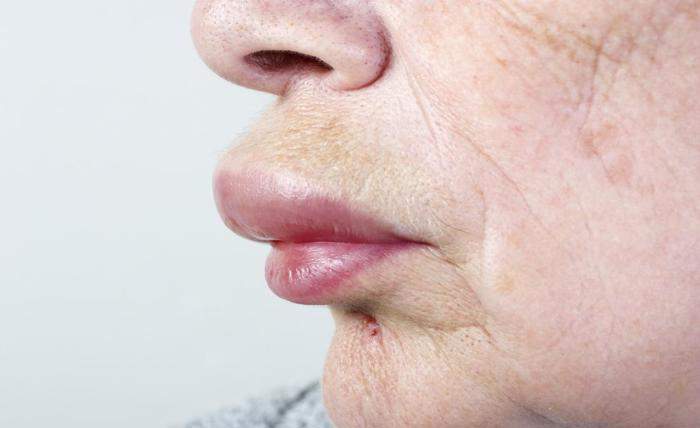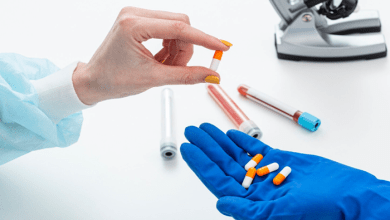
Waking up to see your face looking puffier than usual can be both surprising and concerning. Facial swelling is a common condition that can arise from something as simple as a salty meal the night before or as serious as an underlying medical issue. While occasional puffiness may not be alarming, persistent or sudden swelling is worth paying attention to. Let’s explore the most common causes of facial swelling and what they might mean for your health.
1. Allergic Reactions
One of the most frequent culprits behind facial swelling is an allergic reaction. When your body encounters a trigger—such as certain foods, medications, insect stings, or environmental allergens—it can respond with inflammation. This may cause swelling around the lips, eyes, or cheeks.
In more severe cases, known as angioedema, the swelling can affect deeper layers of the skin and even the airways, making it a medical emergency. If swelling is accompanied by difficulty breathing, dizziness, or hives, seek immediate medical attention.
2. Sinus Infections
Swollen sinuses can lead to puffiness around the eyes and cheeks. A sinus infection, or sinusitis, occurs when the air-filled spaces in your face become inflamed due to bacteria, viruses, or allergies. Alongside swelling, symptoms may include congestion, facial pain, and pressure.
Treatment often involves rest, hydration, and over-the-counter remedies. In bacterial cases, a doctor may prescribe antibiotics.
3. Dental Issues
Oral health concerns are a frequent reason behind facial swelling. Issues such as abscessed teeth, gum infections, or complications with wisdom teeth can often lead to noticeable puffiness, especially on one side of the face. Because dental infections can quickly worsen if left untreated, it’s essential to seek care right away.
If you’re experiencing swelling along with tooth pain, fever, or difficulty opening your mouth, contacting an emergency dentist in Lafayette can help you get the prompt treatment you need.
4. Injuries and Trauma
Accidents, falls, or even minor bumps can lead to localized swelling in the face. The body responds to injury by increasing blood flow and fluids to the affected area. While minor swelling from injuries often subsides with ice and rest, more serious trauma may require medical evaluation to rule out fractures or internal damage.
5. Lifestyle Factors
Not all swelling points to illness. Sometimes, lifestyle choices and daily habits can play a big role:
- Excessive salt intake: High-sodium foods can cause the body to retain water, leading to puffiness.
- Alcohol consumption: Alcohol dehydrates the body, prompting fluid retention and swelling.
- Lack of sleep: Poor rest often shows up as puffiness around the eyes.
Simple adjustments in diet, hydration, and sleep can often reduce these types of swelling.
6. Medical Conditions
Certain health conditions may also cause facial swelling, sometimes subtly and other times dramatically:
- Kidney problems: Impaired kidney function can lead to fluid retention, often noticeable in the face.
- Thyroid disorders: Hypothyroidism may cause a characteristic puffiness around the eyes.
- Cushing’s syndrome: High cortisol levels can create a rounded, swollen face, often referred to as a “moon face.”
If swelling is persistent or associated with other symptoms like fatigue, weight changes, or trouble breathing, it’s important to seek medical evaluation.
7. Medication Side Effects
Some medications may list facial swelling as a side effect. Corticosteroids, blood pressure medications, and certain antidepressants are known to cause puffiness or fluid retention. If you suspect a prescription drug may be the cause, consult your doctor before making any changes.
When to See a Doctor
Facial swelling isn’t always serious, but there are situations where it should not be ignored. Seek prompt medical care if:
- The swelling comes on suddenly and severely.
- You experience difficulty breathing or swallowing.
- The swelling is accompanied by pain, fever, or redness.
- It persists for several days without improvement.
Early diagnosis and treatment can prevent complications and ease discomfort.
Final Thoughts
Facial swelling can stem from a wide range of causes—some mild and temporary, others more serious. Paying attention to accompanying symptoms, recent activities, and overall health can provide clues about the underlying issue. While lifestyle adjustments may address minor puffiness, persistent or severe swelling warrants professional evaluation.
If you ever find yourself wondering, “Why is my face swollen?” the answer might be simple—or it may signal the need to consult a healthcare professional. Staying aware and proactive is the best way to ensure your face—and your health—stay in balance.




